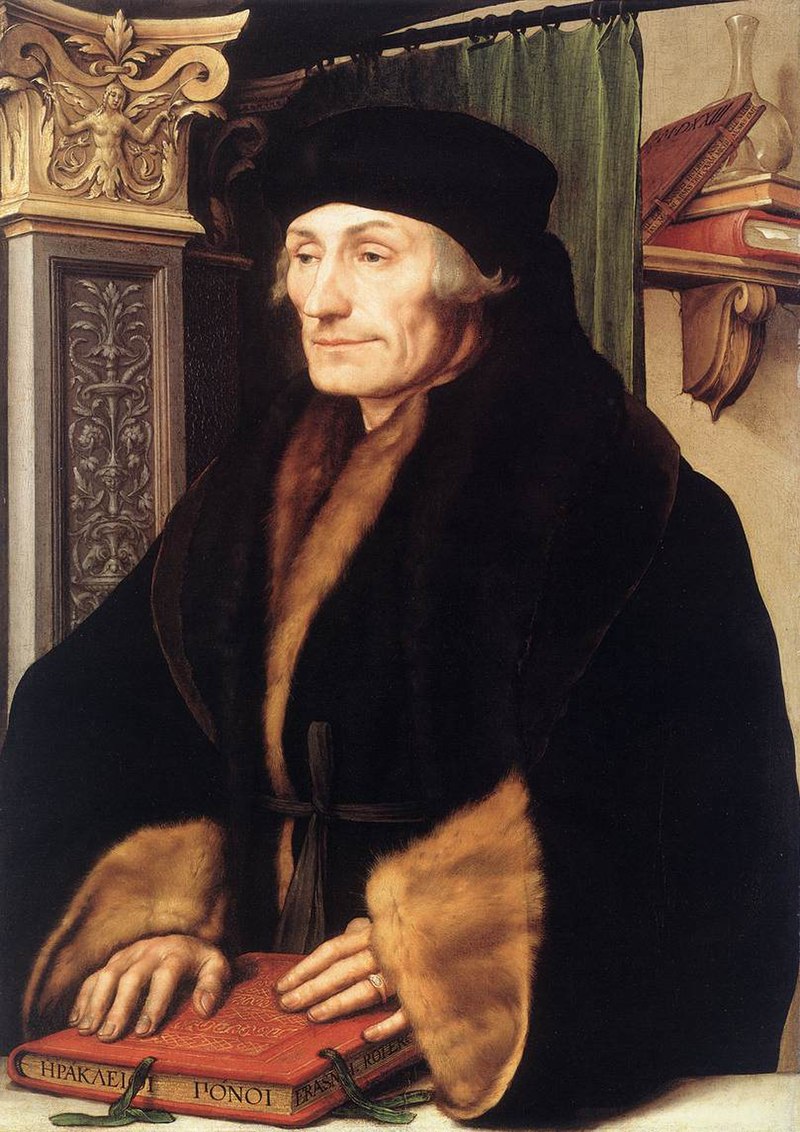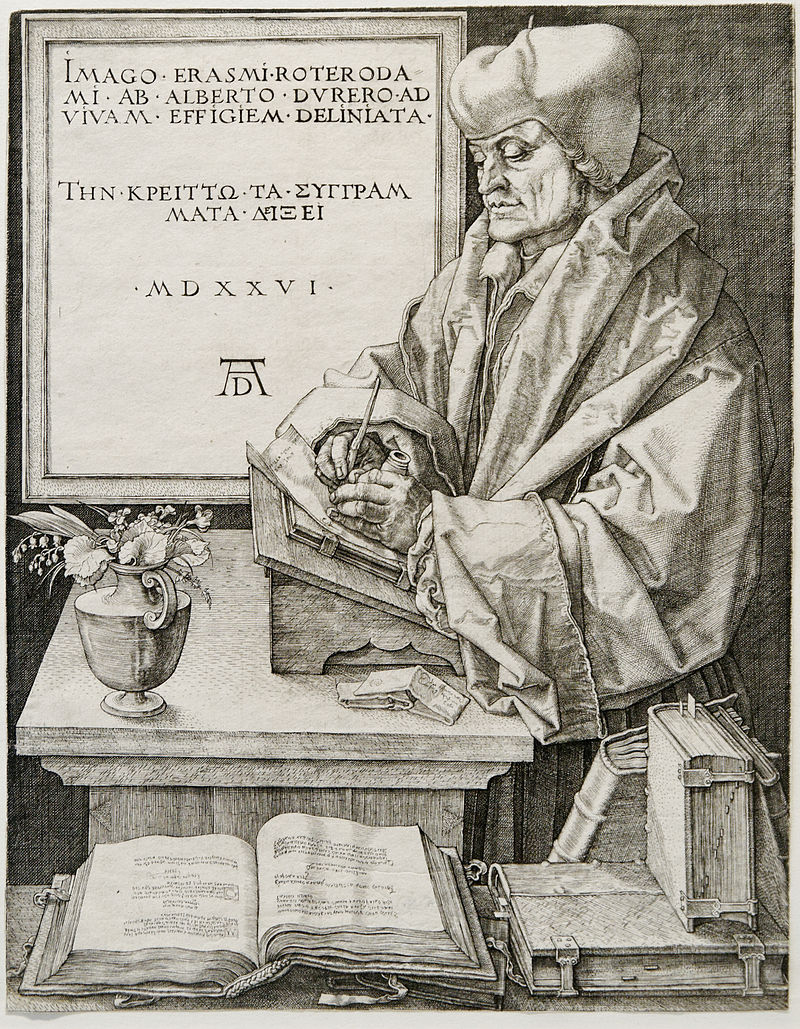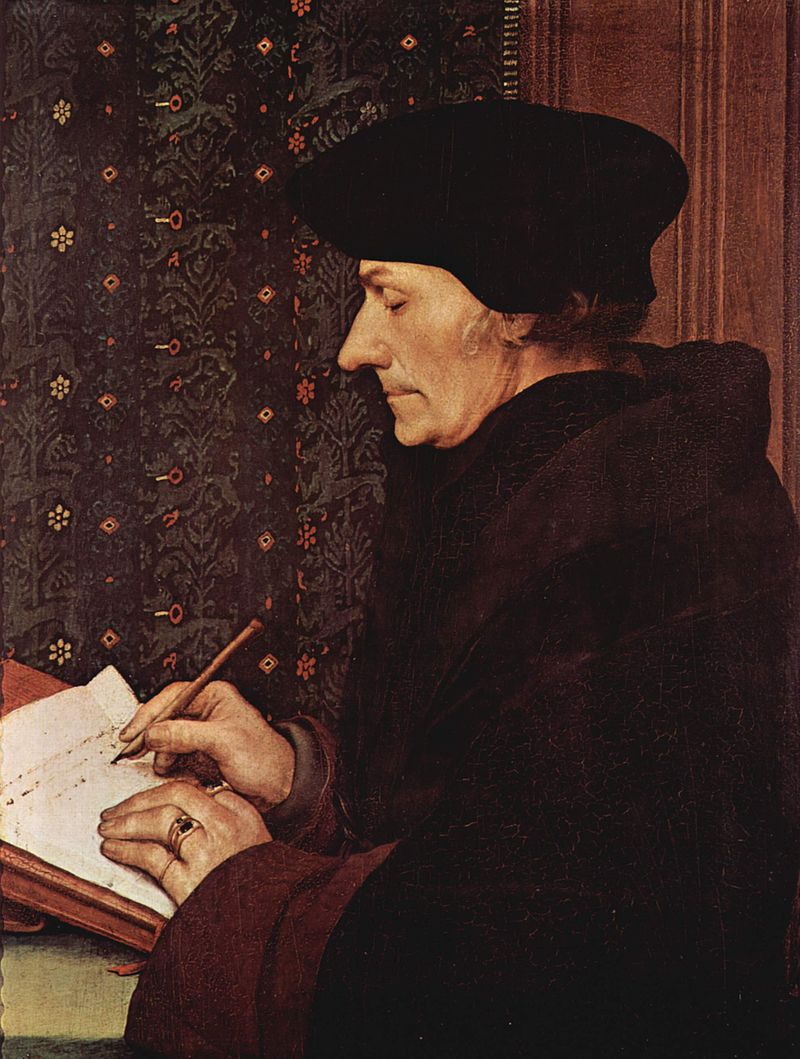ERASMUS
The Renaissance is an important event in European history that stretched from the 14th century to the 17th century. It was preceded by the Middle Ages in Europe and eventually led to the major events of the Age of Enlightenment. In historical terms the Renaissance is important because it led to a major shift in European thought and worldview. The most significant changes that emerged as a result of the Renaissance can be seen in European architecture, art, literature, mathematics, music, philosophy, politics, religion and science. Intellectual thought in these fields flourished during the timeframe of the Renaissance and led to many people questioning long held beliefs about each. This created an environment of discovery and curiosity in which new ideas were constantly being introduced and tested. One such new idea or worldview that developed during the time of the Renaissance was called humanism. In order to better understand Renaissance Humanism it is first important to learn about how it developed and the influential people associated with it, such as Erasmus. He is considered to be one of the most influential writers and scholars of the time period of the Renaissance and had a profound impact on Renaissance Humanism.
|
Desiderius Erasmus Roterodamus (more commonly known as Erasmus or Erasmus of Rotterdam) was born on October 28th, 1466 in Rotterdam, which today is a large city in the Netherlands. The exact year of his birth is controversial and debated but most historians agree that it was likely 1466. His father, Gerard, was a Catholic priest. Little is known about his mother, but it is speculated that she may have been a housekeeper for his father. Regardless, his parents were never married and Erasmus was conceived out of wedlock. They both died in 1483 from the spread of the plague as part of the Black Death.
Erasmus received the best education available at the time, as he studied at several different schools in the Netherlands. At the time he studied Latin and Greek and his education fostered his religious beliefs in Christianity. For instance, he was ordained as a Catholic priest in 1492 at the age of 25. However, this is little evidence that he worked long as a priest and instead continued his studies when in 1495, he went to France to study at the University of Paris. It was here that he began to be influenced by Renaissance Humanism that had emerged as part of the Italian Renaissance. At the time, the University of Paris had become a center for learning in Europe including Renaissance Humanism.
|
One of the main features of the Renaissance was the rediscovery by European thinkers of ancient Greek and Roman ideas and texts. For example, the term ‘renaissance’ in French means ‘rebirth’. This is in relation to the idea that the intellectual culture of the Renaissance was sparked by the rediscovery of these ancient philosophies and ideas which had largely been ignored in Europe throughout the Middle Ages. Many of these ancient texts were preserved by Islamic and Jewish cultures in the Middle East and were not rediscovered by Europeans until the time of the Renaissance. More specifically, famous Italian Renaissance scholar and humanist Petrarch (also known as Francesco Petrarca) is remembered for rediscovering the earlier work of Roman philosopher Cicero. Petrarch’s rediscovery in the 14th century of Cicero’s letters is considered to be the spark of the Italian Renaissance and inspired other European scholars (such as Erasmus) to do the same and look to ancient texts. Petrarch considered the ideas present in Cicero’s and other ancient texts as superior to the ideas present in Europe at the time of the Middle Ages. As well, Petrarch is considered to be the founder of the humanist movement during the Renaissance. In general, Renaissance Humanism was the study of ancient Greek and Roman texts with the goal of promoting new norms and values in society. These norms and views varied from those at the time because they focused less heavily on a religious worldview. Instead, Renaissance humanists such as Petrarch used ancient texts to promote a worldview based on logic and reason. This was to be accomplished through the study of the ‘studia humanitatis’, which today is known as the humanities and includes topics such as: grammar, history, poetry, and philosophy. Renaissance humanists promoted the idea that citizens should be educated in these topics in order to allow them to participate in the social and political life of their society. This was a fundamental shift from the feudalistic and religious life that was the reality for most people in the Europe in the Middle Ages. As such, Petrarch’s actions are considered to be important to the emergence and growth of the overall Renaissance, and inspired other such as Erasmus.
As time passed through the 15th and 16th centuries, the ideals of Renaissance Humanism spread out of Italy and to the rest of Europe, including: France, England and the Germanic kingdoms. For example, this is when Erasmus played a significant role as a humanist during the Renaissance in Europe. He is the most famous Christian humanist of the Renaissance and is considered by many to be ‘the greatest scholar of the Northern Renaissance’. He was a lifelong supporter of the Catholic Church. With that said, he often argued against abuses carried out by the church and instead promoted a focus on traditional faith. For example, during the events of the Protestant Reformation in Europe he continued to support the authority of the Pope and argued instead for reform. For instance, he famously disagreed with Martin Luther and did not fully commit to the ideas of the Protestant Movement. He is most famous for his work as a writer and the translations he provided of ancient works, including the Bible. For example, he is credited with writing new Latin and Greek versions of the Bible. He also translated the works of other notable ancient scholars, including: Cicero and Aristotle. Erasmus is an important Renaissance Humanist because he promoted ancient Greek and Roman knowledge and its importance.
Erasmus died on July 12th, 1536 at the age of 69 from dysentery. Like Petrarch before him, Erasmus travelled and studied throughout much of Europe. This exposure to many different places and cultures helped spread his ideas and helped further developed the main principles of the humanist movement in Renaissance Europe. Today he is best remembered as a writer, scholar and humanist from the Renaissance.
CITE THIS ARTICLEAUTHOR
|
|



